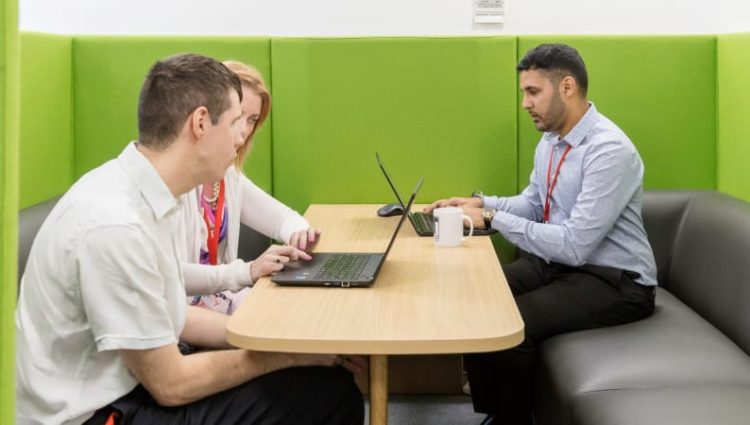When you begin your time at university, thoughts of what you are going to do after graduation will feel like a long way off and will not be a priority. But the years may fly by faster than you think. Some students are certain about what they want to do after completing their studies, but many are not. Sometimes uncertainty about the future can have a negative effect on your mental health and wellbeing.
There will be many paths you can take after graduation. Most students will wish to enter employment and some will start postgraduate studies. Others may have the option to travel or volunteer before making any longer-term decisions.
Worrying about life after graduation can particularly affect blind and partially sighted students. You may be concerned it will be harder for you to find a job when you graduate or that fewer career paths will be open to you. These thoughts can lead to low mood or anxiety. You may have previously had a difficult time transitioning between college and university and feel anxious about another new change. As a result of these factors, you may find yourself avoiding thinking about life after graduation, deciding to ‘worry about it later’.
Although it can be good to live in the moment and enjoy university life while it lasts, accessing support to help you make an informed decision about careers or further study will help you feel more in control and positive about your future.
The good news is, support is available to help you.
Support From Your University
All universities will offer some form of careers and employability support. Have a look at your university’s website to find out more about what they offer and how to access the help you need. Here are some of the things your university may provide:
- Careers and employability service – your university can provide you with one-to-one guidance about career paths and will help you explore your options even if you are not certain what you’d like to do. They can also offer advice about work experience, volunteering and internship opportunities as well as postgraduate study. They may offer support with CV writing and mock interviews to help you prepare.
- Careers fairs – your university may hold in-person or virtual careers fairs where you will have the opportunity to talk to a wide range of employers or training providers all in one place.
- Alumni support – most universities will also offer careers and employability support even after you have graduated.
Support From Charities
The Employment Service
The TPT Employment Service supports blind and partially sighted people wanting to start, restart or progress their careers.
They have a range of employment resources to help you find and apply for work; one-to-one support; and great videos and stories showing what is possible in the world of work for blind and partially sighted people. Contact the Employment service by completing the contact form on the Employment homepage.
RNIB
RNIB offers a range of resources on their website about finding, securing, and staying in employment as a blind or partially sighted person. They can refer you to an employment specialist for one-to-one support and offer advice about self-employment and Access to Work funding. Find out more about RNIB’s information for jobseekers.
Blind in Business
Blind in Business offers training and advice for blind and partially sighted people looking for work, providing tailored support for university students and graduates.
EmployAbility
EmployAbility supports disabled students and graduates with careers help, including linking you with potential employers and offering support with applications and interviews. EmployAbility also runs employability skills workshops for students, networking events and an advocacy service for jobseekers.
Leonard Cheshire
Leonard Cheshire run a paid summer internship and mentoring program, Change100, which matches disabled students and recent graduates with a placement host. The scheme opens once a year. You can register your interest on the Leonard Cheshire website to hear when applications open.
I’m Currently Experiencing a Mental Health Crisis. What Should I Do?
If your life may be at risk or you do not think you can keep yourself or someone else safe from harm, call 999. A mental health emergency should be taken as seriously as a physical one. You will not be wasting anyone’s time.
If you think you need urgent mental health support or advice, please contact your local NHS urgent mental health helpline. You can find your local service via the following link:
Find a local NHS urgent mental health helpline in England
Similar services are also available in Wales, Scotland and Northern Ireland, you can find out about support in your area by calling 111.
If you would like to talk to someone at any time of day or night about anything you are struggling with, you can call the Samaritans listening service on 116123.
If you or a young person you know are not coping with life, you can call Papyrus’ HOPELINK phoneline for suicide prevention advice on 0800 068 4141, between 9am and 12pm, or text 07860 039 9637.







